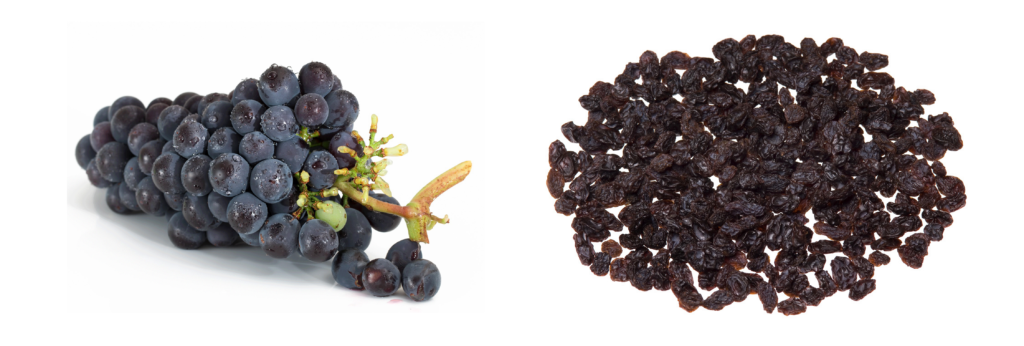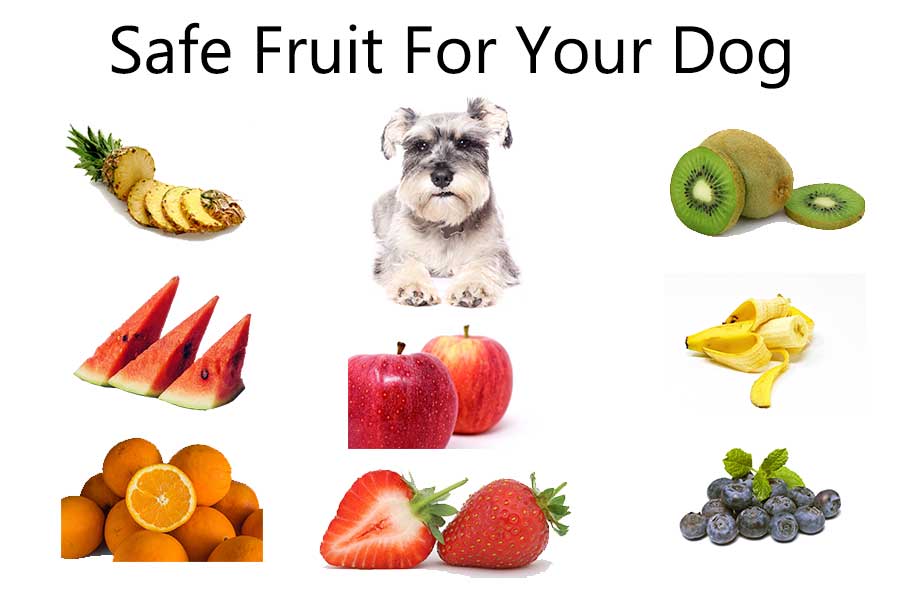Dr. Larkin explains the reason your dog cannot eat grapes, and the difference between a toxic presence in the fruit as opposed to a dog’s allergic immune response.

By Emilee Larkin, DVM
Dogs will eat anything!
This is common knowledge to anyone who has ever owned a dog. Although humans find fruit nutritious and healthy, the same cannot always be said for your dog. Even some of the most common household fruits can be toxic to our pets. The toxicity of grapes within dogs is well documented; however, the cause of this toxic effect is still unknown. It is possible that even a 100 lb. dog that eats one grape could go into kidney failure.

What is the difference between an allergic reaction and a toxic effect? An allergic reaction, is a body’s immune response to exposure, or consumption, of a foreign object. Although an allergic reaction can lead to a serious medical condition, it is not the foreign object itself doing the harm; it’s the body’s immune system going into overdrive. If what is being consumed is toxic; however, then it is the actual substance that is harming the body. When a dog eats grapes, or even a single grape, the damaging effects can begin immediately.
“It is absolutely possible that even a 100 lb. dog that eats a grape could go into kidney failure.”
– Dr. Larkin, DVM

Picture compliments of pixabay/pexels
If you believe that your dog has ingested grapes, you should consult your veterinarian immediately. The veterinarian has a four-hour window to make the pet vomit and avoid issues. If you are not sure whether your dog has eaten any grapes or raisins, some symptoms you should look for are; drinking large amounts of water, urinating a lot, lethargy, a dry nose, pale gums, and heavy panting. Take your dog to your veterinarian if he/she is experiencing some, or all, of these symptoms.
The standard treatment for a dog that has been exposed to grapes or raisins begins with decontamination. Veterinarians will attempt to prevent absorption of the grapes by encouraging the dog to vomit. Further treatment may include aggressive intravenous fluids to flush any traces of the grapes out of the body as quickly as possible and support the kidneys. Veterinarians will also run repeated blood work, to monitor kidneys for damage. Additionally, treatment may also include drugs to maintain blood flow to the kidneys. Since it is unknown where the toxicity of the grapes resonates, it is important to relieve the dog of any lingering threat.
The best action to take when dealing with your dog and grapes, or raisins, is prevention; making sure your dog does not come in contact with them in the first place. Although your dog may not be able to eat grapes, there is plenty of fruity, sweet snacks your dog can eat. Below is a list of fruits your dog can enjoy the nutritional benefits of.

“http://www.akc.org/expert-advice/nutrition/natural-foods/fruits-vegetables-dogs-can-and-cant-eat/”>www.akc.org/expert-advice/nutrition/natural-foods/fruits-vegetables-dogs-can-and-cant-eat/ pictures provided by pixabay.com
